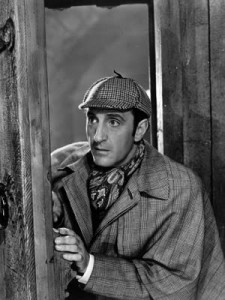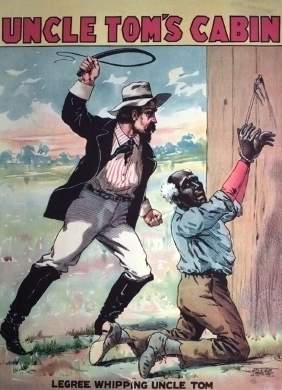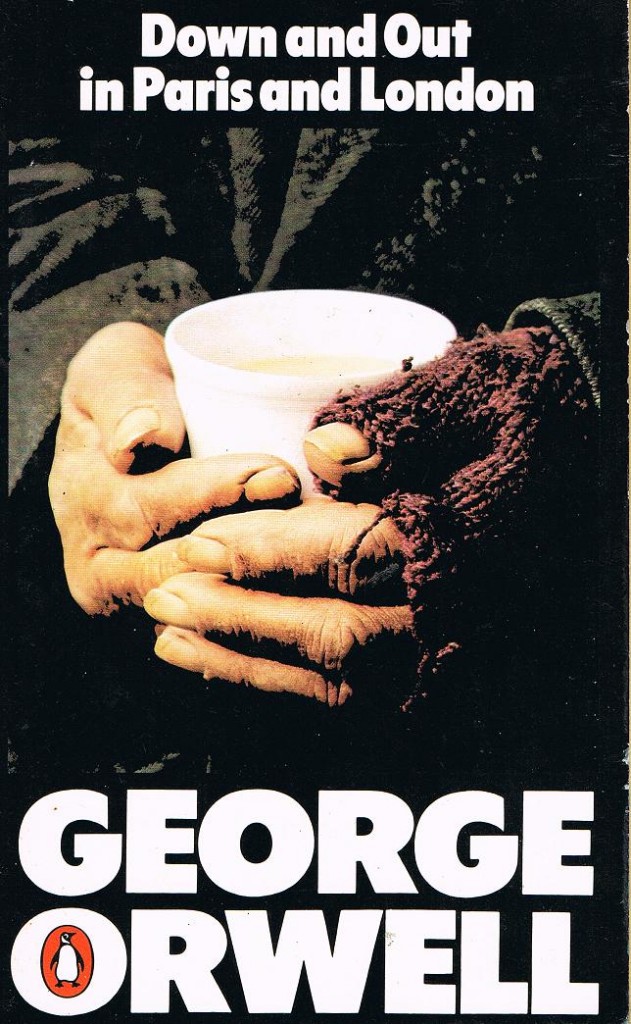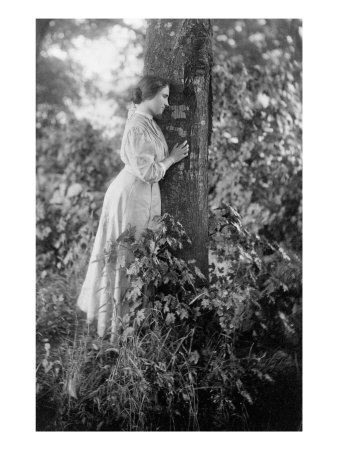 Here’s a new podcast from the rather wonderful Aeon Magazine, in which philosopher Jules Evans explores the theme of empathy. I kick off by talking about the history of empathy, tracing the concept from Adam Smith’s ideas in the 18th century and through developments in child psychology over the past hundred years. Then comes Maria Konnikova, who makes the case that Sherlock Holmes was a master of the art of empathy, based on her new book Mastermind: How to Think Like Sherlock Holmes. Finally there is novelist Tobias Jones, who discusses his attempts to create an empathic community at his home in Somerset.
Here’s a new podcast from the rather wonderful Aeon Magazine, in which philosopher Jules Evans explores the theme of empathy. I kick off by talking about the history of empathy, tracing the concept from Adam Smith’s ideas in the 18th century and through developments in child psychology over the past hundred years. Then comes Maria Konnikova, who makes the case that Sherlock Holmes was a master of the art of empathy, based on her new book Mastermind: How to Think Like Sherlock Holmes. Finally there is novelist Tobias Jones, who discusses his attempts to create an empathic community at his home in Somerset.
Category: literature
Can reading a novel change the world?
 ‘It was through books that I first realised there were other worlds beyond my own; first imagined what it might be like to be another person,’ wrote novelist Julian Barnes in a recent Guardian essay. It’s an enticing thought that reading fiction might help us escape the straitjacket of our egos and expand our moral universes. Modern literary theorists are, however, decidedly sniffy about the notion. ‘They see the idea as too middlebrow, too therapeutic, too kitsch, too sentimental, too Oprah,’ according to Steven Pinker in his latest tome, The Better Angels of Our Nature.
‘It was through books that I first realised there were other worlds beyond my own; first imagined what it might be like to be another person,’ wrote novelist Julian Barnes in a recent Guardian essay. It’s an enticing thought that reading fiction might help us escape the straitjacket of our egos and expand our moral universes. Modern literary theorists are, however, decidedly sniffy about the notion. ‘They see the idea as too middlebrow, too therapeutic, too kitsch, too sentimental, too Oprah,’ according to Steven Pinker in his latest tome, The Better Angels of Our Nature.
Yet Pinker, together with philosopher Martha Nussbaum, psychologist Keith Oatley and historian Lynn Hunt, is amongst a new band of champions for the idea that reading can indeed change not just ourselves, but the world. If we want to put this idea to the test, a good starting point is one of the most popular novels of the nineteenth century, Harriet Beecher Stowe’s Uncle Tom’s Cabin. What interests me, though, is not simply the extraordinary social impact of this admittedly sentimental story, but what its writing reveals about the origins of morality itself. Continue reading
The Six Habits of Highly Empathic People
This is the video of a talk I gave at the Royal Society of the Arts, which describes six ways to expand our empathic potential, drawing on everything from the empathy experiments of George Orwell to developments in industrial design, from the struggle against slavery in the eighteenth century to the Middle East crisis today. Discover why the 21st century needs to become the Age of Outrospection.
The full version of this talk is available as a podcast.
The ideas in this talk are discussed in my new book Empathy: Why It Matters, and How to Get It.
I published an article summarising some of these ideas at the Greater Good Science Center.
Why George Orwell is my empathy hero
 I was recently interviewed by The Browser – a fabulous site which compiles quality writing from around the web – about my five top books on the art of living. In the following extract I discuss George Orwell’s Down and Out in Paris and London, a book which has been a major inspiration for all my work on empathy.
I was recently interviewed by The Browser – a fabulous site which compiles quality writing from around the web – about my five top books on the art of living. In the following extract I discuss George Orwell’s Down and Out in Paris and London, a book which has been a major inspiration for all my work on empathy.
George Orwell’s Down and Out in Paris and London is your second choice. What does it teach us?
I think that Orwell was one of the great travel adventurers of the 20th century. The reason I think that is because in Down and Out in Paris and London he showed that empathy could become an extreme sport and the guideline for the art of living. It’s the second half of the book that I particularly like, in which he describes how he went tramping in east London. He would dress up as a tramp and go into the streets of London, fraternising with beggars and people living on the streets. He was trying to empathise with people who lived on the social margins. Continue reading
To smack or not to smack? An interview with Christopher Wakling
 Christopher Wakling’s new novel, What I Did, is a brilliant, dark and often excruciatingly funny journey into a family nightmare. Narrated by a six-year-old boy obsessed with the animal kingdom, it has been the recipient of scintillating reviews, was nominated for the Booker Prize and is fast becoming a book club favourite. I talked to the author – who is also a respected teacher of creative writing – about what it takes to write through a child’s eyes, and what can happen to you when you do. Continue reading
Christopher Wakling’s new novel, What I Did, is a brilliant, dark and often excruciatingly funny journey into a family nightmare. Narrated by a six-year-old boy obsessed with the animal kingdom, it has been the recipient of scintillating reviews, was nominated for the Booker Prize and is fast becoming a book club favourite. I talked to the author – who is also a respected teacher of creative writing – about what it takes to write through a child’s eyes, and what can happen to you when you do. Continue reading
Empathy with the enemy
 In the spring of 472 BC the people of Athens queued up to see the latest play written by Aeschylus, the founder of Greek tragedy. The Persians was an unusual production, and not only because it was based on an historical event rather than the usual legends of the gods. What must have really shocked the audience was that it was told through the eyes of their sworn enemy, the Persians, who only eight years earlier had fought the Athenians at the Battle of Salamis. Continue reading
In the spring of 472 BC the people of Athens queued up to see the latest play written by Aeschylus, the founder of Greek tragedy. The Persians was an unusual production, and not only because it was based on an historical event rather than the usual legends of the gods. What must have really shocked the audience was that it was told through the eyes of their sworn enemy, the Persians, who only eight years earlier had fought the Athenians at the Battle of Salamis. Continue reading
Helen Keller and the seeing hand
 After being out of print for nearly a century, Helen Keller’s sensational collection of essays, The World I Live In, has recently reappeared in a variety of editions. Although her life is often remembered as an uplifting tale of personal triumph over extreme physical adversity, it is just as much an inspiration for how to expand our imaginations. By taking us on a journey into her dark and soundless world, her writings can help us rethink the nature of perception itself. Continue reading
After being out of print for nearly a century, Helen Keller’s sensational collection of essays, The World I Live In, has recently reappeared in a variety of editions. Although her life is often remembered as an uplifting tale of personal triumph over extreme physical adversity, it is just as much an inspiration for how to expand our imaginations. By taking us on a journey into her dark and soundless world, her writings can help us rethink the nature of perception itself. Continue reading
Solstice Short Story Special: The Ones Who Walk Away From Omelas
 To celebrate the Winter Solstice – or Christmas if that is your festival of choice – I invite you to read one of the most moving pieces of empathic fiction ever written. It is a short story by Ursula Le Guin, ‘The Ones Who Walk Away From Omelas’, first published in 1973. Le Guin says she based her psychomyth parable on an idea from the philosopher William James where he imagined a world in which millions of people could be kept permanently happy on the single condition ‘that a certain lost soul on the far-off edge of things should lead a life of lonely torment’. Here is the story in full. Continue reading
To celebrate the Winter Solstice – or Christmas if that is your festival of choice – I invite you to read one of the most moving pieces of empathic fiction ever written. It is a short story by Ursula Le Guin, ‘The Ones Who Walk Away From Omelas’, first published in 1973. Le Guin says she based her psychomyth parable on an idea from the philosopher William James where he imagined a world in which millions of people could be kept permanently happy on the single condition ‘that a certain lost soul on the far-off edge of things should lead a life of lonely torment’. Here is the story in full. Continue reading
How to empathise with a hedgehog
 Although you may not have spent much time contemplating the character of hedgehogs and our relationship with them, I know a man who has. Ecologist Hugh Warwick is the author of a brilliantly funny and engaging book called A Prickly Affair: The Charm of the Hedgehog, which has just come out in paperback, receiving rave reviews in The Guardian and elsewhere. I spoke with him about his mania for hedgehogs and what his researches around the world – he tracked down a hedgehog in China named Hugh and attended the International Hedgehog Olympic Games in the Rocky Mountains – reveal about our understanding of human empathy with animals. Continue reading
Although you may not have spent much time contemplating the character of hedgehogs and our relationship with them, I know a man who has. Ecologist Hugh Warwick is the author of a brilliantly funny and engaging book called A Prickly Affair: The Charm of the Hedgehog, which has just come out in paperback, receiving rave reviews in The Guardian and elsewhere. I spoke with him about his mania for hedgehogs and what his researches around the world – he tracked down a hedgehog in China named Hugh and attended the International Hedgehog Olympic Games in the Rocky Mountains – reveal about our understanding of human empathy with animals. Continue reading
The Empathy Top Five: Who are the greatest empathists of all time?
The moment has finally come for the Outrospection blog to put its cards on the table and boldly declare who are the greatest empathists of all time. Our selection committee has been painstakingly deliberating over the choices for several months, and you might well be surprised by the results. No, Barack Obama does not appear in our top five, even though he believes ‘the empathy deficit’ to be the greatest scourge of modern society. And not even famed empathetic individuals such as the Dalai Lama, Mother Teresa or Jesus Christ have shown what it takes to make the grade. Continue reading